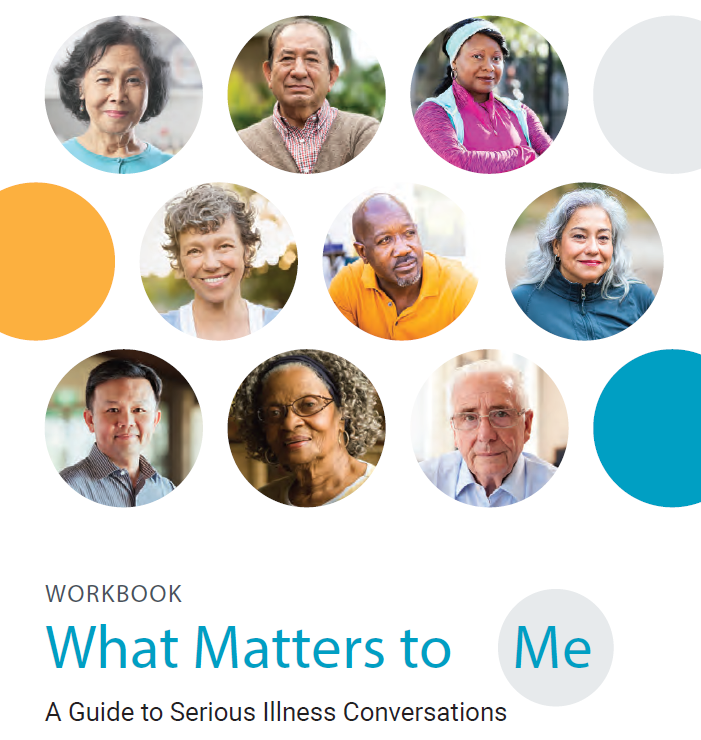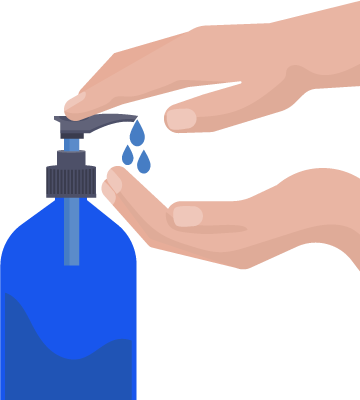It’s really been a year

Publication Date: December 15, 2020
A message from Anna
It’s really been a year. But I could not feel more grateful for the opportunity to work on our most beautiful mission - to ensure that we all get care that supports what matters most to us throughout all our lives, and especially when facing a serious illness.
Quick recap: just prior to the pandemic we launched a series of working groups – that quickly turned into support groups! – but that also led to the creation of our eMOLST web portal, our COVID-specific public messaging (informed by last year’s segmentation research), as well as our visitation policy guidelines that uplift the critical role of ‘visitors’ to the essential care partners they are. We hosted our 5th Annual (first ever virtual) Summit where we committed to an equity-first approach to all our work. And this fall, we began another round of consumer research with an inclusionary design process, in partnership with several organizations around the country, to center the voices and experiences of communities of color in our vision for how to measure and improve serious illness care.
And my goodness, the Coalition members have been doing amazing things. Check out the newsletter archive, where we’ve shared many stories of the programs, tools, ideas and innovations that so many created throughout this challenging time.
As 2020 comes to a close, I want to express my deepest gratitude to all of you. The community we have created together has been a source of inspiration, innovation and hope through some very dark days.
Wishing you all the best for the holiday season.
New Workbook: What Matters to Me

People living with serious illness have a new resource to help them prepare for conversations with their health care providers about their goals, values, and preferences for care before a health crisis. The “What Matters to Me” workbook was developed by Coalition members Ariadne Labs and The Conversation Project with generous support from the Cambia Health Foundation. It draws largely from Ariadne Labs’ evidence-based and tested Serious Illness Conversation Guide. Through answering questions about their strengths, abilities, hopes, and fears patients will be better equipped to express themselves to those who matter to them.
Ariadne Lab’s Dr. Erik Fromme, who is also a palliative care physician at Dana-Farber Cancer Institute, gave the workbook to one of his patients in advance of an upcoming visit. "Reviewing his workbook afterwards, I realized I no longer needed to ask the questions on the Serious Illness Conversation Guide - he'd answered them all really thoughtfully. Instead, we spent our time talking about his questions."
“People had been asking for this type of resource for quite some time,” said Kate DeBartolo, Executive Director of The Conversation Project. “It has quickly become one of our most downloaded tools.” According to DeBartolo, the organization will have a Spanish version posted in just a few weeks.
More than a Visit: Inclusion of Essential Care Partners in a time of COVID

Increased COVID-19 cases are raising new concerns about visitation policies at health care facilities across Massachusetts. We’ve learned a lot since March – including how important it is for people with serious illnesses and significant care needs to have visitors. Because often these aren’t really ‘visitors’ – they are essential members of the care team, or what we’ve started calling essential care partners. In talking to our members across multiple care settings, the Coalition developed a list of guidelines for facilities to consider when evolving their visitation policies. Because what matters most is about more than just safety...
View Guidelines
JPSM Call to Address Systemic Racism

The American Academy of Hospice and Palliative Medicine’s Journal of Pain and Symptom Management (JPSM) wants your help to view its work through a racial equity lens. It put out a call for proposals for articles in four categories:
- Evaluations of how race is portrayed in JPSM articles
- Analysis of how JPSM considers race and injustice when making and reviewing articles
- Opinion pieces outlining Innovative ideas and approaches JPSM should take
- Evaluations and opinion pieces addressing systemic racism in hospice and palliative care literature throughout the industry
Proposals are limited to one page and are due January 4, 2021. Authors of accepted proposals will be notified January 15,2021. Accepted articles will have a July 1, 2021 deadline.
![]()
If there's anything we can do to support you, please email Anna and Stephanie.
